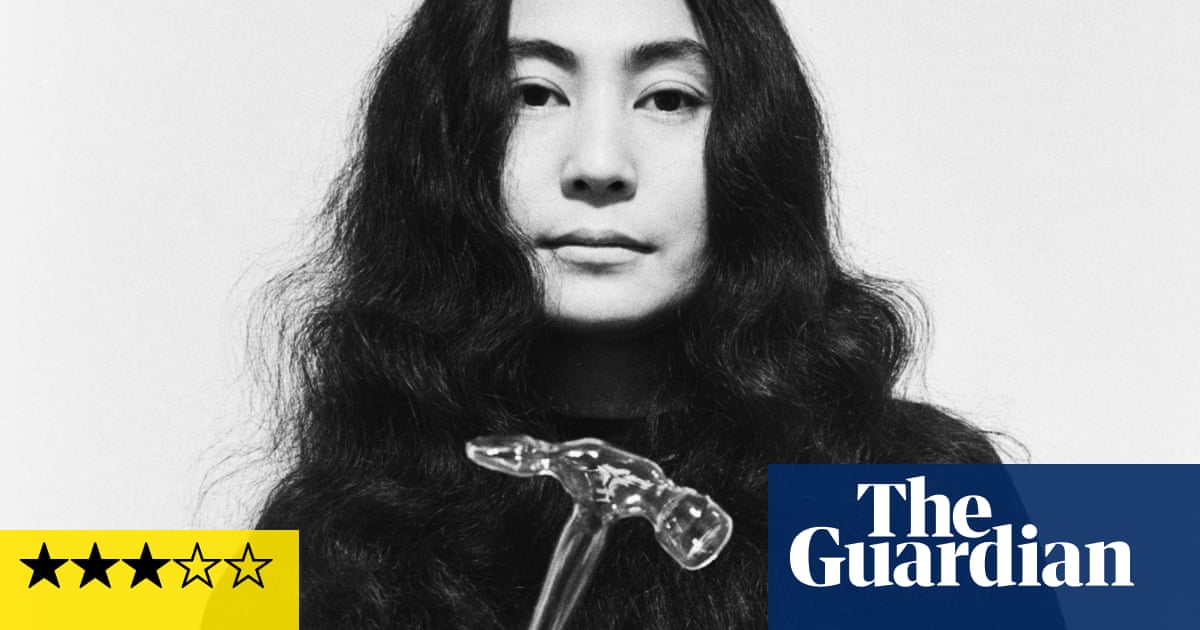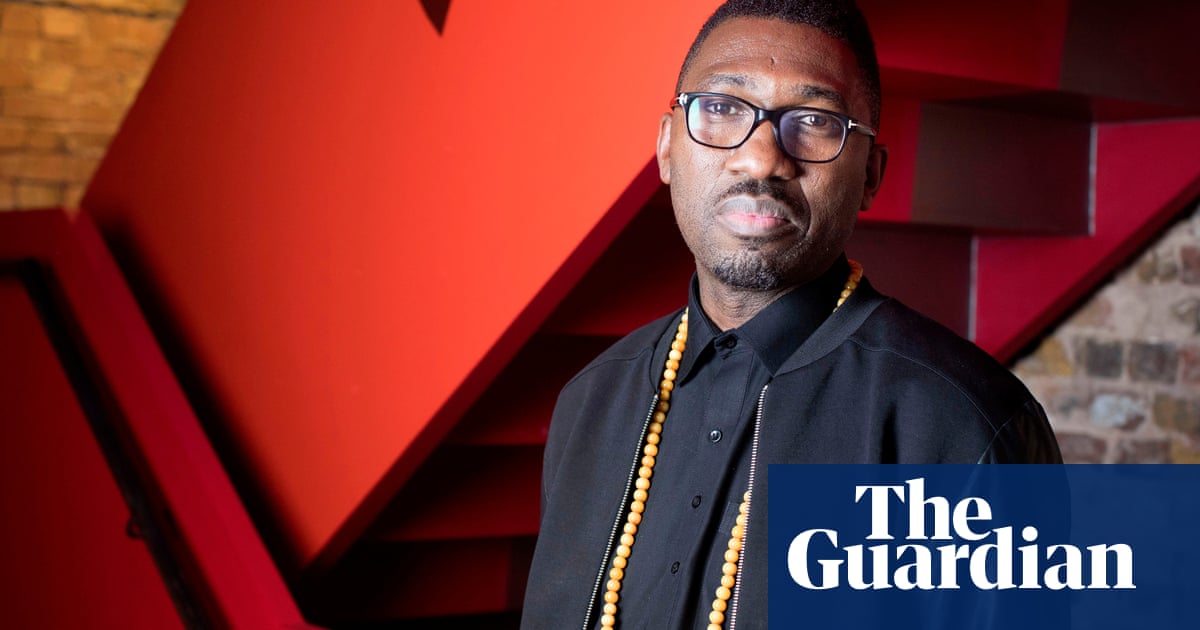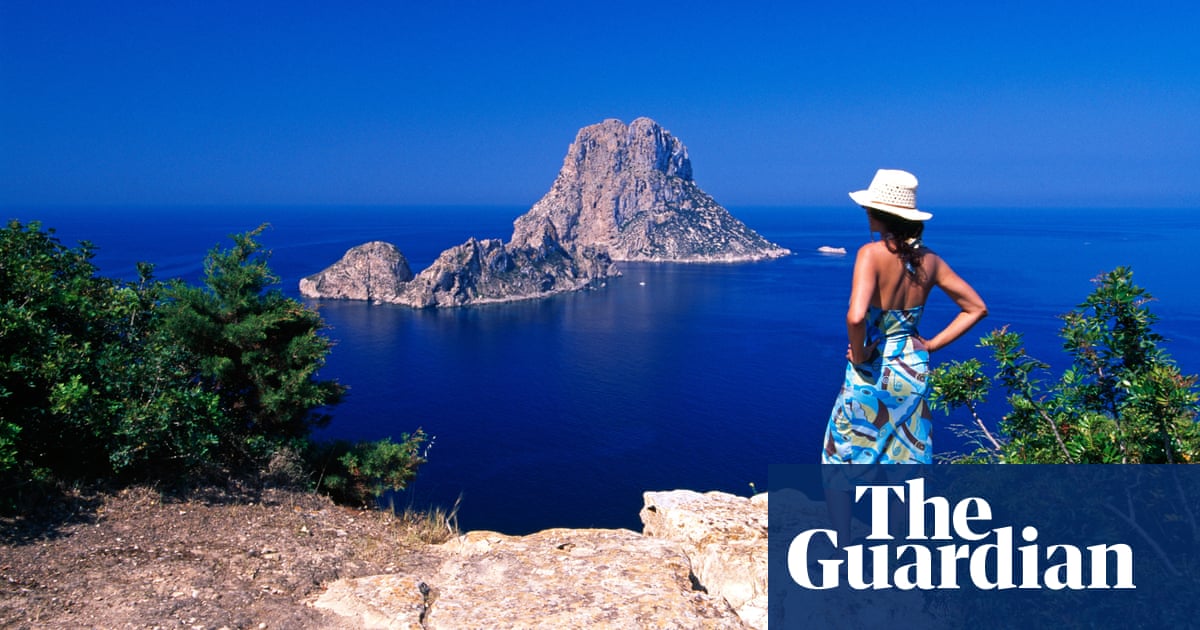
The giant street party has been cancelled. But there are still plans to celebrate the theatre that wowed young crowds, championed black playwrights and conjured finales from Italian cuisine
ow can you have a big 50th birthday bash at a time like the present? London’s Young Vic, that vibrantly popular theatre, had originally planned to hold a giant street party to celebrate its half-century on 11 September. That’s inevitably been put on hold but Kwame Kwei-Armah, the Young Vic’s director, is determined not to let the historic anniversary go unmarked.
Two cherished projects will both be launched on the big day. One will be a projection, illuminating the front of the building for a month, reflecting the theatre’s astonishing history. The other will be an interactive art installation, entitled The Unforgotten, challenging our definitions of leadership.
The building will be adorned with images of three trailblazers of the black community: Mary Seacole, the pioneering British-Jamaican nurse; Marsha P Johnson, a US activist for LGBTQ+ rights, and Ulric Cross the most decorated black serviceman of the second world war. The public will then be invited to nominate its own unsung heroes to add to the installation.
All this is part of an ambitious year-long programme, under the umbrella title of We Are the New Tide, to celebrate the landmark birthday. Kwei-Armah has said that when the theatre reopens he plans “to accelerate representation of work by black artists” and “to ensure that the Young Vic represents the makeup of London”.
This is great news if it means we get to see such long-planned productions as a Hamlet with Cush Jumbo. But while Kwei-Armah’s radicalism, in a world forever changed by Black Lives Matter, is welcome, it’s fair to say that he starts with several advantages. The Young Vic has an exemplary record in staging black drama, whether it be a historical work like Aimé Césaire’s A Season in the Congo, with Chiwetel Ejiofor as Patrice Lumumba, or a contemporary piece like Tarell Alvin McCraney’s The Brothers Size. Along with the Theatre Royal, Stratford East, the Young Vic also attracts the most diverse audience in London theatre, aided by the fact that 10% of the seats are given free to local schools (as well as neighbours of the theatre). And then there is the building itself, especially since the £12.5m refurbishment by Steve Tompkins: it’s not just a theatre but a palace of pleasure where people come to eat, drink, talk and pass the time in congenial surroundings.
Chairing a panel to mark the Young Vic’s 40th anniversary, I asked its then director, David Lan, what the secret was of its enduring success. Lan’s reply was “a sense of joy”. And that was something visible from the start. The Young Vic was founded by Frank Dunlop in 1970 initially as part of the National Theatre. Bill Howell’s breezeblock building, erected on a bombsite in The Cut, cost a modest £60,000 and was scheduled to last for five years. What was temporary became permanent thanks largely to Dunlop. Now an energetic 93-year-old, he was always a life-enhancing figure who believed passionately in youth: this was to be a theatre for young people with a company composed of young actors and it took off from the start.
A year ago Dunlop, on one of his rare visits from New York, hosted a party for members of the original company in a Soho cafe. As a guest, I found it a deeply moving occasion as Ronald Pickup, Andrew Robertson, Anna Carteret, Annabel Leventon and director Peter James shared their memories of half a century ago. Old stories were told such as how Dunlop and Jim Dale – who played the lead in the opening show of Molière’s Scapino – were stuck for a finale and nipped into a local Italian restaurant and improvised a song from dishes on the menu. Pickup also recalled playing the title role in Sophocles’ Oedipus and being confronted after the show by Laurence Olivier who said to him, “My dear boy, you’re playing this amazing text in the most beautiful, intimate theatre in the whole of London so why do you feel the need to fucking shout?” But what really struck me was the actors’ loyalty to an enterprise that broke the mould: one that proved there was a hunger for theatre beyond the usual middle-aged, middle-class constituency.
Looking back over those early seasons, I’m struck by how creative exuberance was combined with serious quality: The Taming of the Shrew and Charley’s Aunt sat alongside Endgame and Look Back in Anger. Seasons were also structured around a core team of players, among them the late and much-lamented Nicky Henson and Denise Coffey. Even after Dunlop’s departure, successive directors maintained his belief that you could be popular and good at the same time.
Michael Bogdanov had a capacity for headlong inventiveness: Peter Hall in his Diaries describes Bogdanov’s version of Coleridge’s The Ancient Mariner as “physical, spectacular, enthralling to young people”. David Thacker’s tenure was marked by his passion for US drama and Ibsen: his production of Ghosts, with Vanessa Redgrave and Timothy Dalton, glowed with an erotic tension we had never before glimpsed in the work of the bewhiskered Norwegian. Tim Supple – initially in tandem with Julia Bardsley and then on his own – created memorable evenings out of Grimm’s Fairytales and the Arabian Nights Stories.
There were occasional lean periods when money was tight. When the need to appeal to new audiences became a precondition of Arts Council subsidy, the Young Vic suddenly found itself in fierce competition with rival venues. But just when it was approaching early middle-age along came a director, Lan, who built on the past while enriching the present.
When Lan arrived at the Young Vic he was known as an academically trained South African anthropologist, a slightly cerebral dramatist and a promising director. He got off to a dreadful start in 2000 with a production of Julius Caesar that, for reasons I could never quite fathom, showed the bare-bottomed conspirators hatching their plot to murder Caesar in a bath-house. Having survived that, Lan, over the next 18 years, proved to be a brilliant producer who took the Young Vic to new heights in several ways.
One was through the imaginative rebuild in 2004, which Steve Tompkins of Haworth Tompkins called “the architecture of continuity and accretion”. The original raw brickwork remained but the main stage was made more adaptable, two new auditoria called the Maria (150 seats) and the Clare (70 seats) were added as well as workshops, offices, rehearsal rooms and, crucially, a restaurant and bars. The building still has recognisable echoes of the 1970 Young Vic while offering a constantly refigured stage and providing a seductive rendezvous.
Lan’s other achievements were to make the Young Vic unashamedly a director’s theatre and a focus for eclectic internationalism: two ideas that happily coalesced. In his compelling, non-linear memoir, As If By Chance, Lan describes his delight in persuading the great Swiss-German director, Luc Bondy, to stage a production of Schnitzler’s Sweet Nothings. Unfazed by Bondy’s demand for an unprecedented eight weeks’ rehearsal, Lan told his staff: “We give our directors what they need.” In the end, Bondy was so impressed by the discipline of his young cast that he delivered the production three weeks ahead of time.
But Lan’s faith in directors led to a procession of memorable productions by visiting maestros: Ivo van Hove’s A View from the Bridge, Benedict Andrews’ Three Sisters, Patrice Chéreau’s I Am the Wind, Gísli Örn Garðarsson’s airborne Icelandic Romeo and Juliet, Peter Brook’s Le Costume and The Valley of Astonishment. That wide-ranging internationalism also led Lan to co-produce The Jungle, brilliantly documenting the stories of Calais-based refugees, and to choose as his final show Matthew Lopez’s epic study of the legacy of Aids, The Inheritance, inhabited by the spirit of EM Forster: both works directed by a fellow adventurer, Stephen Daldry.
If anything has characterised the Young Vic in recent years, it has also been an ongoing exploration of black and Asian experience. This has taken many forms. Cape Town’s Isango Ensemble have been regular visitors, with productions ranging from The Magic Flute to A Man of Good Hope, dealing with a young Somali refugee’s capacity for survival. There have been revivals of classic American works such as Lorraine Hansberry’s A Raisin in the Sun and Langston Hughes’s Simply Heavenly as well as a chilling indictment of racism in the form of a musical, The Scottsboro Boys.
That last was admittedly the work of a white creative team in director Susan Stroman and composer and lyricist, John Kander and Fred Ebb. It is also true that more – much more – needs to be done in representing the realities of modern Britain. But Kwei-Armah has made a bold start to his reign by hosting such productions as Death of a Salesman, with a predominantly black cast, and Fairview in which Jackie Sibblies Drury examined what one critic called “the warping power of the white gaze”. He has also inherited a theatre that has a record of openness to new ideas and that exudes a sense of liberation. Even if there won’t be a street party this year, that’s not a bad present for a 50th birthday.












